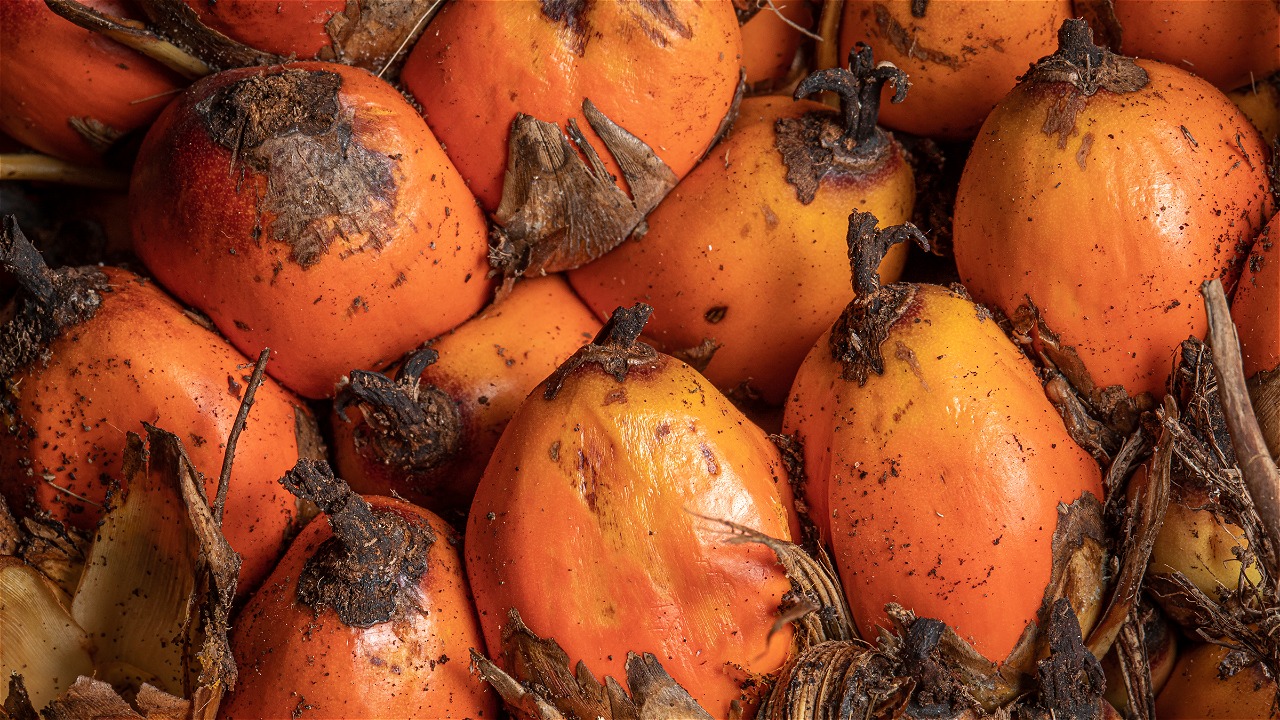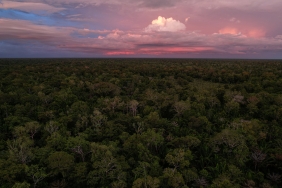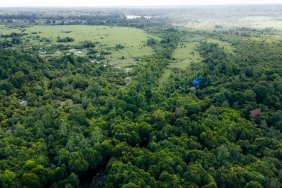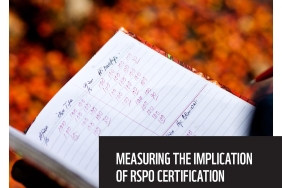NOTES FROM ICOPE 2014
By Annisa Ruzuar
ICOPE 2014, titled "Oil Palm Cultivation: A Model for Future Sustainable Agricultural Development", closed last Friday, February 14. During the three days of implementation, a number of things became WWF-Indonesia's record at the international conference attended by around 400 participants from 20 countries. The issue of forest conversion and protection of high conservation value areas became one of the main topics of discussion of participants and presenters.
During the opening ceremony, Minister of Forestry Zulkifli Hasan's appeal to the palm oil industry not to buy palm oil from illegal plantations was noted. "I also want to convey an appeal that palm oil processing factories should not buy oil palm fruit bunches whose plantations are located in production forest areas, protected forests, and conservation forests such as in Tesso Nilo," Zulkifli said. "This is important because without anyone buying oil palm fruit bunches from inside these forest areas, it will stop the encroachment of forest areas by irresponsible planters and will ultimately save the remaining natural forest areas in Indonesia," he continued.
On June 26, 2013, WWF-Indonesia launched a special study report on illegal oil palm plantation practices titled "Sawit from the National Park: Tracing Illegal Palm Oil FFB in Riau". The report captured the distribution of fresh fruit bunches (FFB) from within the Tesso Nilo forest complex to two subsidiaries of the Wilmar and Asian Agri groups. The report was followed up by both groups with efforts to improve the supply chain and stop purchasing FFB from within the Tesso Nilo forest complex.
Furthermore, Zulkifli also emphasized the importance of establishing high conservation value forest (HCVF) areas in oil palm plantations to potential investors in connection with the release of forest areas into plantations. "Regarding the policy of establishing HCVF in forest areas released for plantations, it is an effort to implement the Ministry of Forestry's policy in order to prevent conflicts between animals and planters in the HGU areas of oil palm plantations, as well as a commitment to maintain biodiversity in the HGU area," he explained.
The issue of establishing and managing high conservation value areas in oil palm plantations is still a hot debate in this ICOPE. A collaborative study between GAR, PT SMART, Greenpeace and TFT titled "High Carbon Stock Forest Conservation" received a response from Dr. Rosediana Soeharto from the Indonesian Palm Oil Commission. In her response, Dr. Rosediana stated that the study needs to pay attention to Indonesian law, where plantation areas that are not used within a certain period of time must be returned to the government because they are not in accordance with the land allocation that has been given.
Dr. Rosediana was also present as a representative of Indonesia Sustainable Palm Oil (ISPO) and was a speaker at the discussion session "Convergence of Sustainability Certification Systems for Palm Oil Production". In the session that presented representatives from Mutu Agung Lestari (certification body), ISPO, RSPO certification body, GAPKI, PT SMART and farmer representatives, several panelists recommended a joint audit of ISPO and RSPO to improve efficiency and accelerate the process of implementing sustainability standards.
For WWF itself, ISPO is one of the crucial steps in the context of legal implementation in the palm oil industry. In this case, WWF-Indonesia is very open to be involved in the process of strengthening ISPO at the landscape level. The process undertaken by the MoF in the Forest Law Enforcement, Governance and Trade, Voluntary Partnership Agreement (FLEGT VPA) partnership by involving the parties in the preparation, implementation and monitoring process can be a reference for the palm oil industry. The legality scheme developed by the MoF with the European Union has proven to be appreciated by the market. WWF encourages the Indonesian government to explore the possibility of a similar approach in encouraging global market recognition of the ISPO scheme.
The same thing was conveyed by the Minister of Forestry in his speech regarding the intention of the Ministry of Forestry to share experiences in developing the Timber Legality Verification System (SVLK) and Sustainable Production Forest Management (PHPL) for the preparation of ISPO. In the process of developing sustainability standards, Zulkifli conveyed the need to involve civil society (civil society) to develop ISPO norms, criteria and indicators so that the development of oil palm plantations as a model of sustainable agricultural development can be achieved.
Another recommendation noted by WWF is a report made by CIFOR. The presentation titled "Soil GHG emissions from forest conversion and oil palm cultivation: An update on emission factors", recommends the prohibition of oil palm plantations on peatlands because the carbon dioxide (CO2) emissions released are very large. Furthermore, based on the results of the analysis of carbon stocks and flows (flux), CO2 and nitrogen oxide (N2O) emissions from forest conversion to oil palm plantations are very high, so it is recommended to develop plantations outside the forest area and divert them to abandoned land.
The presentation of various research results and the latest innovations in the field of oil palm management is the importance of holding ICOPE. WWF-Indonesia CEO, Dr. Efransjah, conveyed the importance of investing in studies and research to improve the palm oil industry. In addition, the industry also needs to pay special attention and cooperate with civil society to encourage the improvement of oil palm plantation management by smallholders (smallholders). "More than 40% of oil palm land in Indonesia is managed by independent smallholders, they are a part that we should not ignore and they must also be able to implement sustainability standards in their activities. Therefore, companies and civil society as their counterparts need to help farmers to improve their practices," he said.
In closing, the Deputy Minister of Agriculture. Dr. Rusman Heriawan, addressed the issue of negative campaigning that was previously raised by the Minister of Agriculture, Suswono, in his opening speech. Dr. Rusman said that to deal with the negative campaign against the palm oil commodity, the Indonesian palm oil industry needs to create a positive campaign based on facts in the field. Improving the image of the palm oil industry is done through the improvement and development of the palm oil industry in a sustainable manner by implementing sustainability standards, both the mandatory ISPO standard and other standards such as ISCC and RSPO. He also emphasized that ISPO was made in accordance with applicable regulations and sustainability rules, as a step by the Government of Indonesia to protect the environment.





